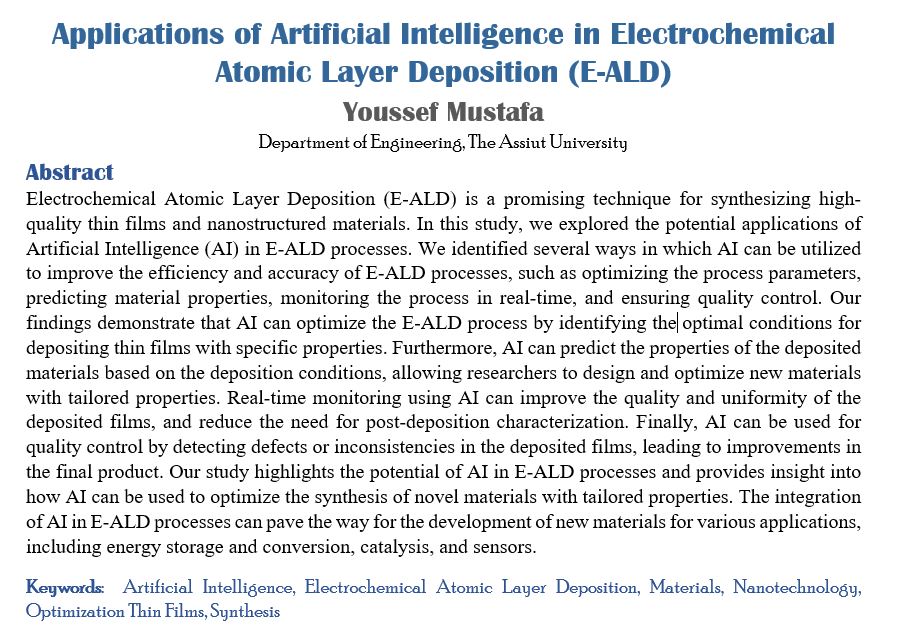Applications of Artificial Intelligence in Electrochemical Atomic Layer Deposition (E-ALD)
Keywords:
Artificial Intelligence, Electrochemical Atomic Layer Deposition, Materials, Nanotechnology, Optimization Thin Films, SynthesisAbstract
Electrochemical Atomic Layer Deposition (E-ALD) is a promising technique for synthesizing high-quality thin films and nanostructured materials. In this study, we explored the potential applications of Artificial Intelligence (AI) in E-ALD processes. We identified several ways in which AI can be utilized to improve the efficiency and accuracy of E-ALD processes, such as optimizing the process parameters, predicting material properties, monitoring the process in real-time, and ensuring quality control. Our findings demonstrate that AI can optimize the E-ALD process by identifying the optimal conditions for depositing thin films with specific properties. Furthermore, AI can predict the properties of the deposited materials based on the deposition conditions, allowing researchers to design and optimize new materials with tailored properties. Real-time monitoring using AI can improve the quality and uniformity of the deposited films, and reduce the need for post-deposition characterization. Finally, AI can be used for quality control by detecting defects or inconsistencies in the deposited films, leading to improvements in the final product. Our study highlights the potential of AI in E-ALD processes and provides insight into how AI can be used to optimize the synthesis of novel materials with tailored properties. The integration of AI in E-ALD processes can pave the way for the development of new materials for various applications, including energy storage and conversion, catalysis, and sensors.

Downloads
Published
How to Cite
Issue
Section
License
Copyright (c) 2021 Applied Research in Artificial Intelligence and Cloud Computing

This work is licensed under a Creative Commons Attribution-NonCommercial-NoDerivatives 4.0 International License.




